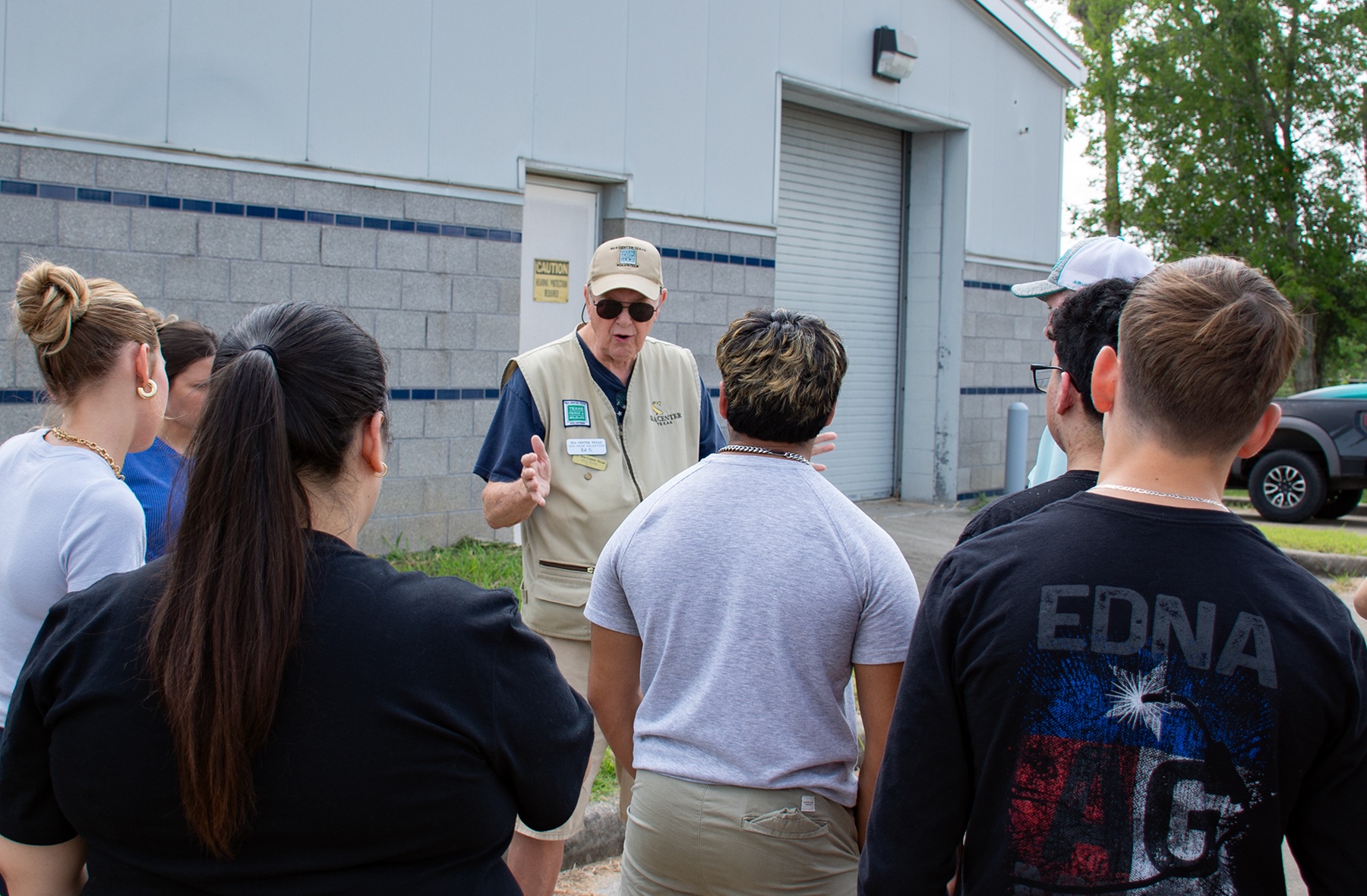Alcoa Foundation grant funds field trips for local area students

At a fish farming facility on the Texas coast, volunteer tour guide Ed Stiles led a group of students through a behind-the-scenes look at the efforts to restore local fish populations.
The group, comprised of 13 students of the wildlife management ecology and fisheries class from Edna High School and their teacher, walked through the facility at Sea Center Texas in Lake Jackson to get a glimpse into the science and dedication behind maintaining Texas’ fishing culture.
The trip and several others made this past school year were made possible through a $79,000 grant from Alcoa Foundation awarded last year, which has been administered by the University of Houston-Victoria, to primarily fund field trips for local area students in an effort to increase interest in the environment and science. The university is thankful and is thrilled to receive new funding of $50,000 for the next two years.
“I hope the students come away with the understanding of the importance of the natural systems and the unique roles humans play in them,” said Dmitri Sobolev, interim dean for the UHV College of Natural & Applied Science. “I certainly hope these trips will continue in the future because it is a great opportunity and a great experience for students.”
In the past, students in the area have taken part in field trips going to The Bay Education Center in Rockport and the Texas Floating Classroom along the Coastal Bend area.
“We raise over 10 million fish a year, and we are trying to get the populations of the fish species stabilized,” Stiles said. “In the ’70s and ’80s they were overfished, so we are trying to get it up where it needs to be.”
The Aug. 21 tour began in the life support room, where staff carefully control water and light conditions to create the ideal environment for breeding. The students then visited the brood rooms, home to mature red drum fish where they listened to Stiles describing the delicate process of collecting fish eggs.
From there, the group observed the incubation room, where the first three days of a fish’s life are closely monitored, often the most critical period for survival, Stiles said. After this stage, young fish are transferred to grow-out ponds, where they spend about two and a half months growing before being release into local bays such as Matagorda Bay, Galveston Bay and Sabine Lake, Stiles said.
“Our mission is to increase and maintain the level of sport fish,” Stiles said. “Red drum, speckled trout and flounder, those are the ones we are trying to get up to and maintain to an acceptable level so everyone can have a good place to go catch them.”
For Kannon Koop, a sophomore at Edna High School, the recent field trip was a day of firsts and filled with fresh perspectives.
“The day was pretty fun,” Koop said. “I’ve never been saltwater fishing before, and I didn’t know some fish could get that big.”
Beyond the day’s activities, Koop said he is already thinking about his future. When he graduates high school, Koop said he is planning a future serving in the military or doing pipeline welding.
“These type of field trips are important because students can learn all kinds of stuff about these fish,” Koop said. “It was a fun experience.”
The University of Houston-Victoria, located in the heart of the Coastal Bend region since 1973 in Victoria, Texas, offers courses leading to more than 50 academic programs in the schools of Arts & Sciences; Business Administration; and Education, Health Professions & Human Development. UHV provides face-to-face classes at its Victoria campus, as well as an instructional site in Katy, Texas, and online classes that students can take from anywhere. UHV supports the American Association of State Colleges and Universities Opportunities for All initiative to increase awareness about state colleges and universities and the important role they have in providing a high-quality and accessible education to an increasingly diverse student population, as well as contributing to regional and state economic development.

